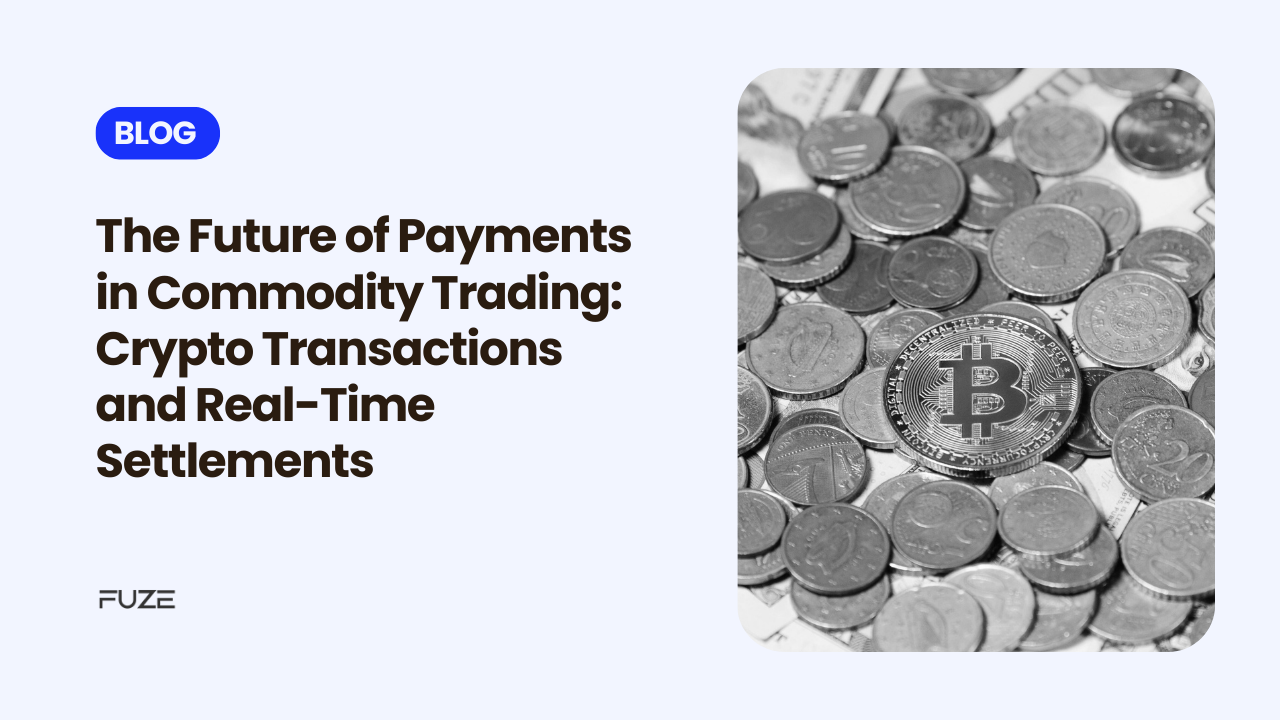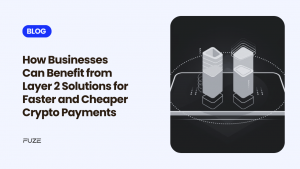Commodity trading has been a cornerstone of the global economy for centuries, evolving alongside technological advancements. As global trade continues to expand, the need for efficient and secure payments has never been more pressing. Today, crypto transactions in commodity trading are emerging as a powerful tool for revolutionizing this industry, offering numerous advantages over traditional methods and unlocking various new opportunities for investors.
In this blog, we will delve into the reasons why cryptocurrencies are becoming the preferred asset for payments in commodity trading and explore the advantages they offer over traditional methods of transactions and payment settlements.
How Cryptocurrency is Changing the Landscape of Commodity Trading
Commodity trading dates back to ancient civilisations that traded goods. Over time, the practice has evolved, incorporating sophisticated instruments like futures contracts and options. Today, commodity trading remains a dynamic and complex industry involving a diverse range of participants, including producers, traders, and consumers.
Consequently, the need for faster and secure settlements has also increased significantly. Traditional methods, while effective, often pose challenges such as slow settlement times and high costs. Blockchain technology, a decentralised digital ledger, offers a promising solution to these challenges. By providing a tamper-proof record of transactions, blockchain enhances transparency, reduces fraud, and streamlines operations. This innovative technology also empowers businesses to automate trading processes, minimise risks, and improve overall efficiency.
In essence, blockchain offers a tamper-proof record of every transaction, ensuring transparency and reducing the risk of fraud. All parties involved in a trade can access, verify and track transaction details in real-time, which enhances trust and confidence.
Drawbacks of Traditional Payment Settlements and How Cryptocurrencies Address Them
Traditional payment settlements often face several drawbacks, including:
- Slow Processing Times: Traditional methods can take several days or even weeks to complete, leading to delays in transactions and impacting cash flow.
- High Transaction Costs: Intermediaries like banks charge fees for every transaction, increasing costs for businesses and individuals.
- Limited Accessibility: Traditional payment systems may be inaccessible to those without bank accounts or in regions with limited financial infrastructure.
- Security Risks: Traditional payment methods are susceptible to fraud, chargebacks, and data breaches.
Cryptocurrencies, powered by blockchain technology, offer solutions to these challenges:
- Faster Settlements: Cryptocurrency transactions can be settled almost instantly, improving efficiency and reducing the risk of counterparty default.
- Reduced Transaction Costs: By eliminating intermediaries, cryptocurrencies can significantly lower transaction fees.
- Increased Accessibility: Cryptocurrencies can provide financial services to individuals and businesses without traditional bank accounts.
- Efficient Security: Blockchain technology provides a secure and transparent record of transactions, reducing the risk of fraud and data breaches.
- Enhanced Traceability: Payment Settlements done through cryptocurrencies are immutable and all parties involved in the trade can track all transactions.
The Role of Stablecoins in Payment Settlements

Stablecoins, are a type of cryptocurrency pegged to a stable asset like a fiat currency or commodity, are playing an increasingly important role in payment settlements. Their stability and efficiency make them attractive alternatives to traditional payment methods, particularly for cross-border transactions.
Key Advantages of Stablecoins in Payment Settlements:
- Global Accessibility: Stablecoins can facilitate cross-border transactions between individuals and businesses in different countries, regardless of their geographic location or access to traditional financial services.
- Enhanced Security: Stablecoins benefit from the security features of blockchain technology, such as cryptographic algorithms and consensus mechanisms, which make transactions safe and reliable.
- Increased Transparency: Blockchain provides a transparent and immutable record of all stablecoin transactions, enhancing trust and accountability.
Challenges and Opportunities of Crypto Transactions in Global Markets
The adoption of blockchain technology for commodity trading is not without its challenges. Regulatory hurdles, technology adoption barriers, and market volatility are some of the key obstacles that need to be addressed.
Regulatory Hurdles
One of the biggest challenges facing blockchain-based commodity trading is the evolving regulations on crypto across the globe. The lack of clear and consistent regulations can create uncertainty for businesses and may hinder their adoption. To overcome this challenge, stakeholders need to stay informed about regulatory developments and work with regulators to develop clear guidelines and standards.
Technology Adoption Barriers
Another challenge is the technology adoption barriers. Many companies are still hesitant to adopt blockchain technology due to concerns about security, scalability, and interoperability. Additionally, the lack of standardization in the blockchain industry can make it difficult for companies to choose the right platform for their needs. To address these barriers, companies need to invest in research and development, educate their staff, and partner with experienced blockchain providers.
Market Volatility
Commodity markets are inherently volatile, and the introduction of blockchain technology can amplify this volatility. While blockchain can increase transparency and reduce fraud, it can also make it easier for traders to engage in speculative behavior, which can exacerbate market fluctuations. To manage this risk, companies need to develop effective risk management strategies and stay informed about market trends.
Addressing the Challenges
To overcome these challenges and unlock the full potential of blockchain technology in commodity trading, companies need to take a proactive approach. This includes:
- Engaging with Regulators: Working closely with regulators to develop clear and consistent regulation for blockchain-based commodity trading.
- Investing in Technology: Investing in research and development to address technology adoption barriers and ensure that companies are using the right blockchain platforms.
- Developing Risk Management Strategies: Implementing effective risk management strategies to mitigate the impact of market volatility.
- Collaborating with Industry Partners: Partnering with other companies in the commodity trading industry to share knowledge, resources, and best practices.
Conclusion
Cryptocurrency is revolutionising the commodity trading industry by providing a secure, transparent, and efficient platform for payment settlement and managing transactions. Platforms like Hyperledger Fabric and commodity-specific solutions like Vakt are at the forefront of this transformation.
As blockchain technology continues to evolve and mature, we can expect to see even wider adoption in the commodity trading sector. The benefits of increased transparency, reduced costs, and enhanced security offered by blockchain will drive its integration into traditional business processes.
Fuze, a leading provider of digital asset infrastructure, offers a comprehensive suite of solutions to enable businesses to seamlessly integrate crypto payments and commodity trading into their operations. With Fuze, you can accept crypto payments, send and receive crypto, store crypto assets, explore DeFi applications, and engage in commodity trading using digital assets.
Disclaimer: Virtual assets carry significant risks, including high volatility and potential loss of your entire investment. They are not backed by governmental protections, and recourse may be limited in case of loss. Always assess your risk tolerance, fully understand the risks, and seek independent financial advice if needed before investing.
Frequently Asked Questions
1. What are the Popular Commodities Traded Using Crypto?
Some of the most popular commodities traded using cryptocurrencies include:
- Precious Metals: Gold, Silver
- Energy Commodities: Oil, Natural Gas
2. How Can I Secure My Crypto Assets for Commodity Trading?
To ensure the security of your crypto assets, consider the following tips:
- Strong Passwords: Use strong, unique passwords for your crypto exchange accounts and wallets.
- Two-Factor Authentication (2FA): Enable 2FA to add an extra layer of security.
- Hardware Wallets: Store your cryptocurrencies offline in a hardware wallet for maximum security.
- Regular Security Audits: Keep your devices and software updated with the latest security patches.
3. What are the Tax Implications of Crypto Commodity Trading?
The tax implications of crypto commodity trading can vary depending on your jurisdiction. It’s essential to consult with a tax professional to understand the specific tax rules and regulations that apply to your situation.
4. How Can I Stay Updated on the Latest Trends in Crypto Commodity Trading?
To stay informed about the latest trends and developments in crypto commodity trading, consider the following:
- Follow Crypto News Outlets: Stay updated with news from reputable crypto news sources.
- Join Crypto Communities: Participate in online forums and communities to discuss ideas and strategies.
- Attend Crypto Conferences: Attend industry conferences and events to learn from experts and network with other traders.
5. What is the Future of Crypto Commodity Trading?
The future of crypto commodity trading is promising. As blockchain technology continues to evolve and gain wider adoption, we can expect to see increased innovation and growth in this space.







